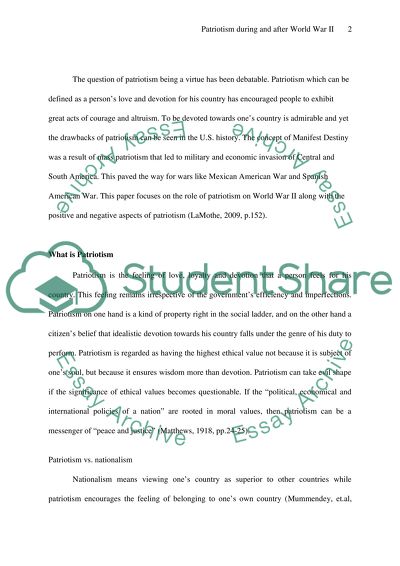Cite this document
(“Patriotism during and after World War II Essay Example | Topics and Well Written Essays - 1500 words”, n.d.)
Retrieved from https://studentshare.org/psychology/1449650-patriotism-in-group-out-group-formations-during
Retrieved from https://studentshare.org/psychology/1449650-patriotism-in-group-out-group-formations-during
(Patriotism During and After World War II Essay Example | Topics and Well Written Essays - 1500 Words)
https://studentshare.org/psychology/1449650-patriotism-in-group-out-group-formations-during.
https://studentshare.org/psychology/1449650-patriotism-in-group-out-group-formations-during.
“Patriotism During and After World War II Essay Example | Topics and Well Written Essays - 1500 Words”, n.d. https://studentshare.org/psychology/1449650-patriotism-in-group-out-group-formations-during.


